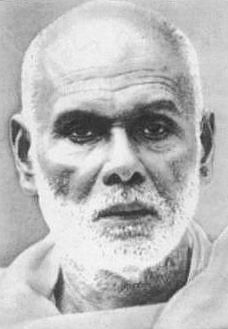Bhaja Govindam
Verse 3
Naristanabhara Naabhidesam,
Drstva MaGa Mohavesam
Etan mamsava sadivikaram
Manasi Vichintaya Varam Varam
Seeing the full bosoms of young maidens and their navel
Verse 3
नारीस्तनभर नाभीदेशं
दृष्ट्वा मागामोहावेशम् |
एतन्मांसवसादि विकारं
मनसि विचिन्तय वारं वारम् ||
Naristanabhara Naabhidesam,
Drstva MaGa Mohavesam
Etan mamsava sadivikaram
Manasi Vichintaya Varam Varam
Seeing the full bosoms of young maidens and their navel
Do not fall prey to maddening delusions
All are just a form of flesh, fat, etc.
Remember this well. Think this over and over.
Remember this well. Think this over and over.
The immediate response to this, specially in this day and age, would be celibacy. We have heard this before, be celibate and desist from all vices. Today we live in a world, where it has become crystal clear, that nothing sells like sex. Everywhere we turn, we are enticed by display of skin, of both women and men.
In the previous stanza, Adi Shankaracharya, advises us against the desire to accumulate and hoard wealth. Here he has turned his attention to another common delusion for us, humans, our inability to control passion. Again, as i indicated, it may seem misplaced advise in our world today. Or then again, it is probably even more important and relevant today, than ever before.
While the lines are directed towards a male in the society, the import of these words are not lost to the opposite sex. The inability to control these passions are genderless, strange it may seem to some, but nevertheless an universal truth. I read in a book somewhere recently, "every time a man cheats, one must remember that there is a woman who assists him". My intent is not focus on infidelity and who is responsible, but more to highlight that this fact, sexual passion is not simply a male obsession. And more importantly, it necessary to realize that he in not arguing against biological needs or our basic human instincts.
He, rather, cleverly help us overcome these instincts. Human beings, have some inherent discriminative ability, that allows them to distinguish objects of the opposite sex. People pick and choose who they desire to indulge in this act. And thereby we are able to discern between our immediate family and members from outside. We are therefore able to curb our instincts in certain situations. We are also able to control when, where, and how. So it is not necessarily true that we have little or control on our instincts. We do. We infact have a lot of control and we can also train and tweak these instincts to behave. It is this that the master is trying to allude to by bringing the comparison to raw flesh. If nothing works, the imagery of raw flesh or blubbery fat is good enough to help us put a pause on these instincts.
The objects of human desire are not necessarily a threat to us, nor are they vices in themselves. The truth is in our hallucination in these. Our perception of how important these are to our lives that determine how these impact us. Shankaracharya's advice will allow us to develop the faculty required to focus on the essentials, rather than on indulgences.
